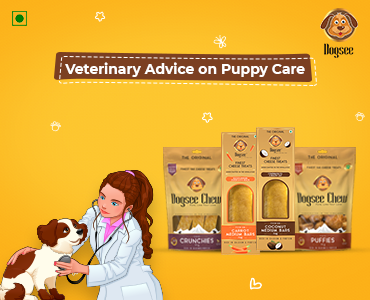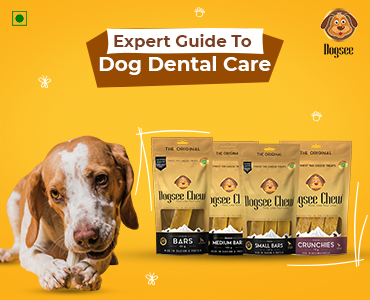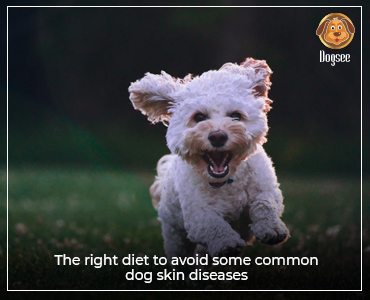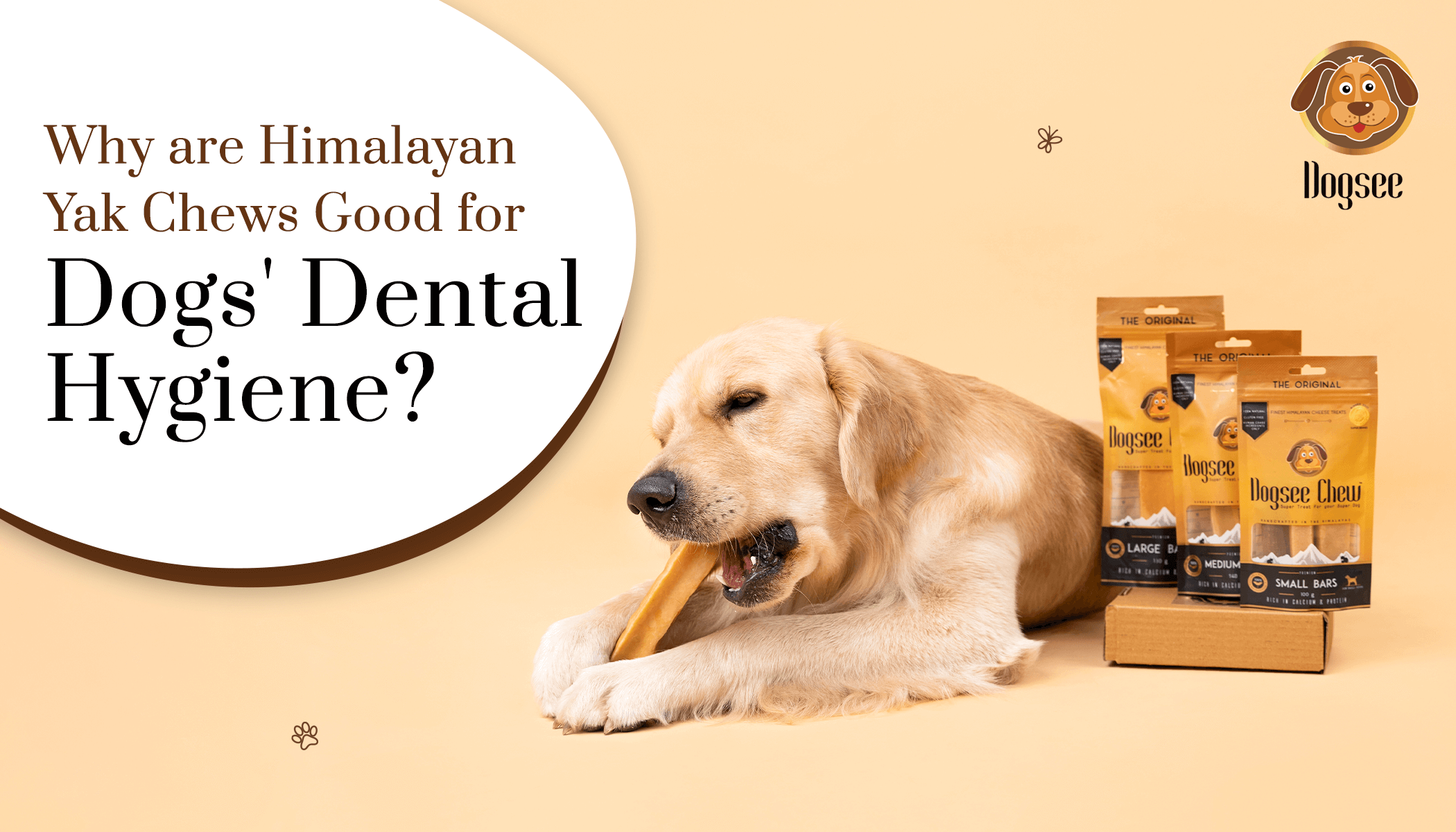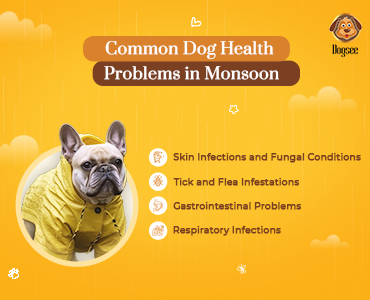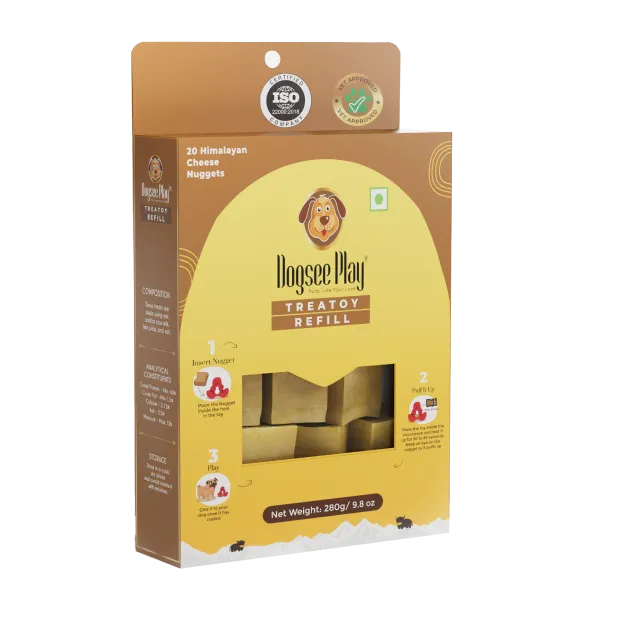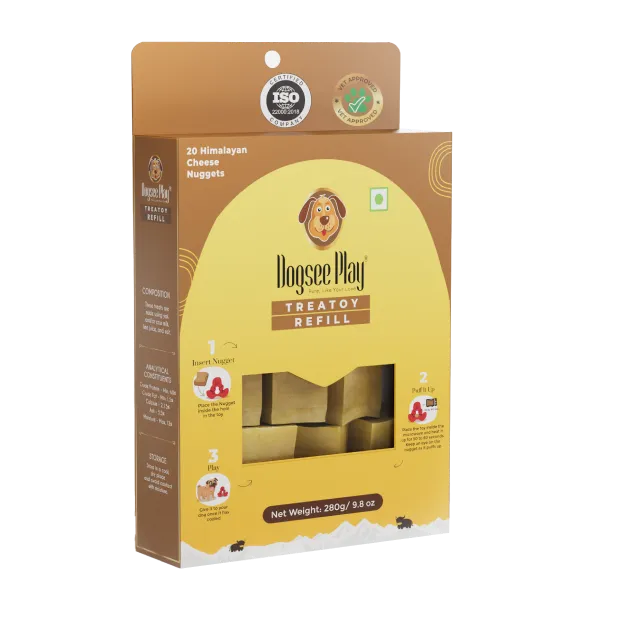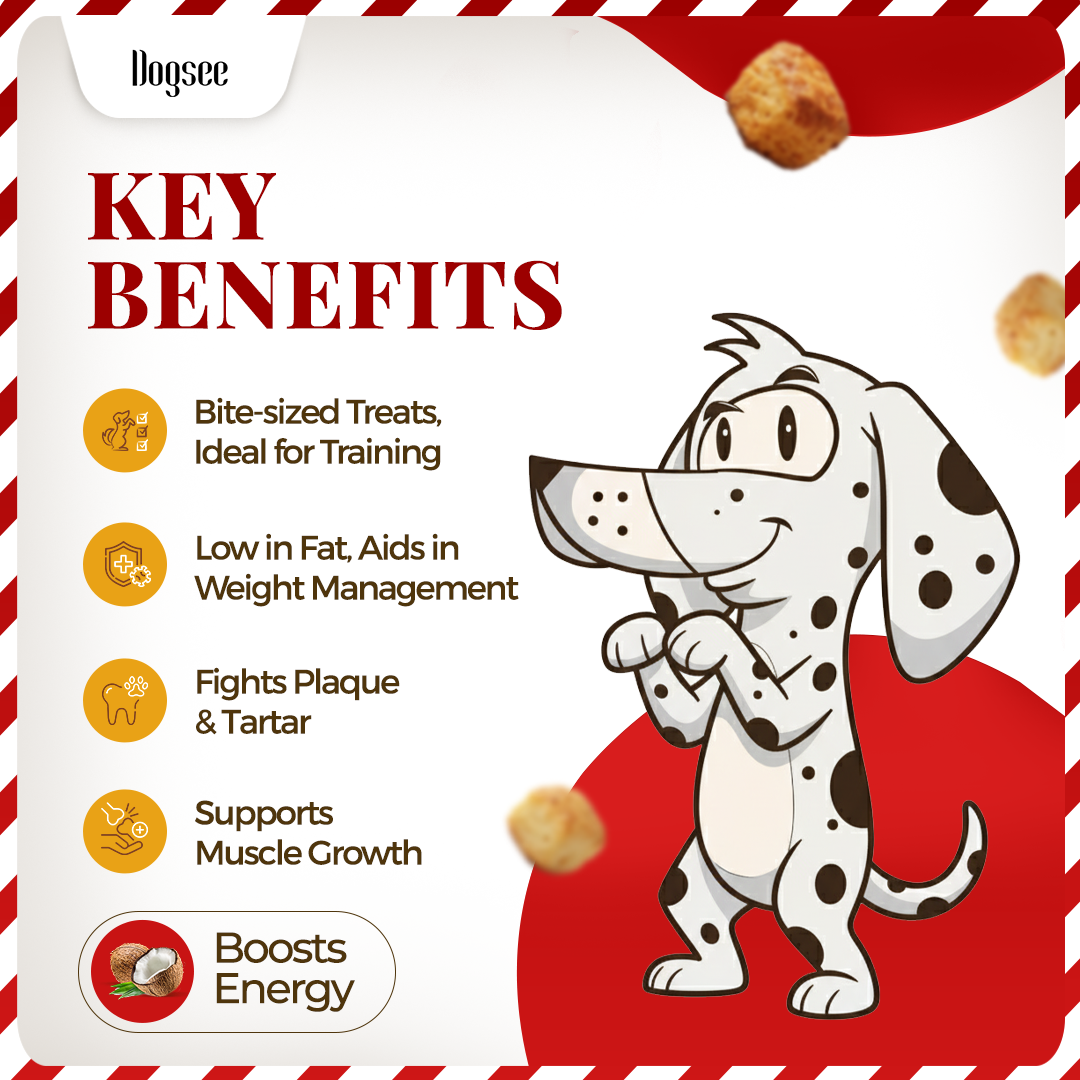Being a dog parent comes with great responsibility. It’s essentially like having a human child - except your baby can’t communicate what’s wrong in a language that you understand. They get sick, and are prone to infections and diseases, just like us. That’s why it’s important to understand common dog diseases they might be prone to and their signs and symptoms. So in the case your fur baby does show symptoms, you can immediately get them on the right treatment before it’s too late.
So let’s take a look at some common dog diseases and some preventive measures to keep you well informed.
Common Dog Diseases
Cancer: It can be extremely difficult to wrap your head around your pup getting diagnosed with cancer. But cancer is a disease that can be caused by both genetics and environmental factors - and dogs can get various types of cancer, as people do. There are cancers that can be cured and some that, unfortunately, are incurable.
Some symptoms of cancer include lumps, swelling, persistent sores, lethargy, black stools, difficulty in breathing, urinating or defecating, loss of appetite, and bad breath.
Diabetes: Diabetes - especially Type 1 Diabetes - is the most common disease found in dogs. Diabetes in dogs can be caused by either insulin deficiency or impaired insulin production combined with inadequate response to insulin. A lot of factors contribute to diabetes such as obesity, autoimmune diseases, genetics, chronic pancreatitis, and abnormal protein deposits. The good thing is that diabetes is manageable with good care and treatment.
Some symptoms of diabetes include weight loss, increased urination, change in appetite, lethargy, dehydration, excessive water consumption, vomiting, urinary tract infections, and chronic skin infections.
Heartworm: Heartworm is a disease that is transmitted from animal to animal by mosquitos. When a carrier mosquito bites a dog, the “heartworm” travels through the bloodstream - harming the vital organs. Heartworm is a parasitic worm that lives in the heart and pulmonary arteries - and several hundred heartworms can live in one dog for years.
Heartworm is a preventable disease, and there are chewable tablets, pills, and other topical medication the vet can prescribe to prevent heartworm, and normally your vet performs a heartworm screening during checkups to ensure that your dog is heartworm negative.
That being said, it is a fatal disease so it’s important to know the symptoms. Some symptoms of heartworm include difficulty in breathing, coughing, vomiting, fatigue after moderate exercise, and weight loss. Some dogs don’t show any signs of symptoms so ensure that you give your dog his/her heartworm medication every month, as prescribed by your veterinarian.
Kennel Cough: Kennel Cough is a contagious respiratory infection that can be transmitted airborne, via direct contact (bumping noses), or through contaminated surfaces (sharing food/water bowls). It is highly treatable but the symptoms are similar to other infections such as canine distemper or canine influenza virus to name a few, so it’s important that you talk to your veterinarian immediately if you notice any of the symptoms - just so you can treat it and rule out other serious diseases.
Some symptoms of kennel cough include a strong cough (persistent dry cough that sounds like “honking”), low fever, lethargy, loss of appetite, sneezing, and runny nose.
Parvovirus: Canine Parvovirus is a highly contagious viral disease that can be spread through direct contact (infected dog) or indirect contact (contaminated surface). It’s a disease that severely damages the stomach and small intestines, and in some cases, the heart. Puppies are the most vulnerable to the disease - and they remain vulnerable until they get vaccinated, starting at 6 weeks of age. It’s extremely important to ensure that your pup gets his/her vaccinations at the right intervals to avoid parvo and such severe diseases.
Some symptoms of parvovirus include lethargy, vomiting, loss of appetite, blood/foul-smelling diarrhea, weakness, fever, and dehydration.
Rabies: Rabies is a viral disease that is transmitted by the bite of an infected dog. It’s a disease that people commonly fear since it is fatal once the symptoms start showing. The virus affects the brain and the spinal cord. But it is preventable with vaccination, and now, rabies vaccination is required everywhere.
The vaccination not only protects your dog from getting rabies, but it also protects your dog if he/she bites someone. If you don’t have proof of rabies vaccination, some places may place your dog in a lengthy quarantine, or even euthanize them.
Some symptoms of rabies include hypersensitivity, changes in behavior (aggression, irritability), fever, seizures, loss of appetite, disorientation, constant licking/itching of the bite, and weakness.
Ringworm: Ringworm is a contagious disease that results in patchy spots or hair loss. It is a fungus that infects the skin, nails, and hair - and it can be transmitted to humans and other animals. It sometimes spreads rapidly to other parts of the dog’s body, so it’s important that you notify your veterinarian immediately if your dog shows any signs of symptoms.
If your veterinarian does confirm that your dog has ringworms, then he/she will also recommend necessary steps to ensure that other pets/people don’t get ringworm as well. If your dog has ringworm, make sure you disinfect all surfaces (bed, carpet, floor) and frequently vacuum if you have a dog that sheds a lot.
Some symptoms of ringworm include patchy, circular bald spots, skin lesions near the hair, paw, ears, and forelimbs, and broken hair.
Some Preventative Measures
The thing about these common diseases is that most of them are preventable, and curable with proper treatment and care. Regular vaccination and vet checkups are key to ensuring that your dog is healthy as can be, and to catch the diagnosis early on before it turns into a serious, fatal condition.
Another key to ensuring that your dog is healthy, and doesn’t develop such diseases is nutrition. Kibble is a silent killer, and while you may not see symptoms immediately or ever, it slowly affects your dog’s health, and comprises their health, making them more susceptible to serious allergies/illnesses. So, something you can do at home to ensure that your dog remains disease-free is to get him on the right diet and feed him 100% natural food and treats.
Dogsee Chew has some amazing treats - from hard bars, and puffed treats to single-ingredient treats that are 100% natural, human-grade - and void of grain/gluten, preservatives, chemicals, and any ingredient that can harm your pup’s health. Moreover, the natural ingredients provide so many nutrients and health benefits to your pup - from improving immunity, dental hygiene to aiding the production of hemoglobin and red blood cells.
It can be scary to think of your dog ever developing serious diseases and/or health issues, but preventing such diseases is well within your control - with proper nutrition and care. So make sure that you are well educated on the basics of dog health, nutrition etc., and feed him/her the right diet so your pup can live a long, healthy, disease-free life!
 HELPFUL0 people found it helpful
HELPFUL0 people found it helpful
Related Blogs
Subscribe to Our Blogs
and never miss on the latest update!









